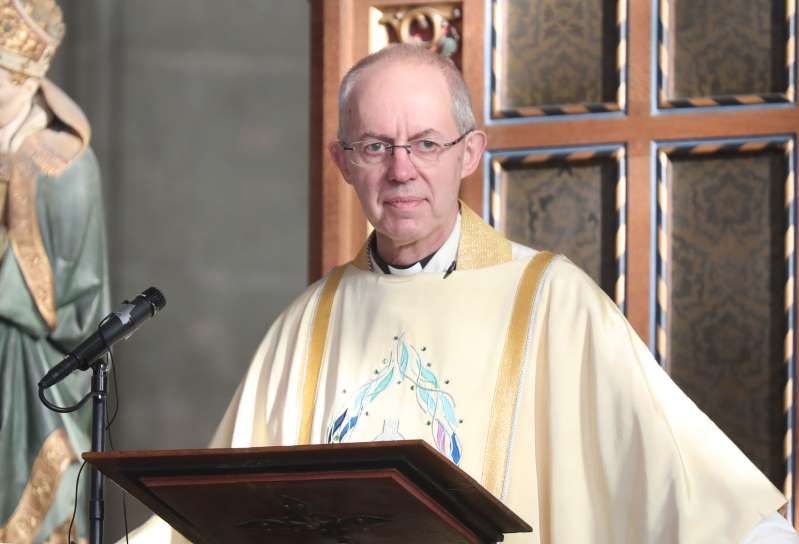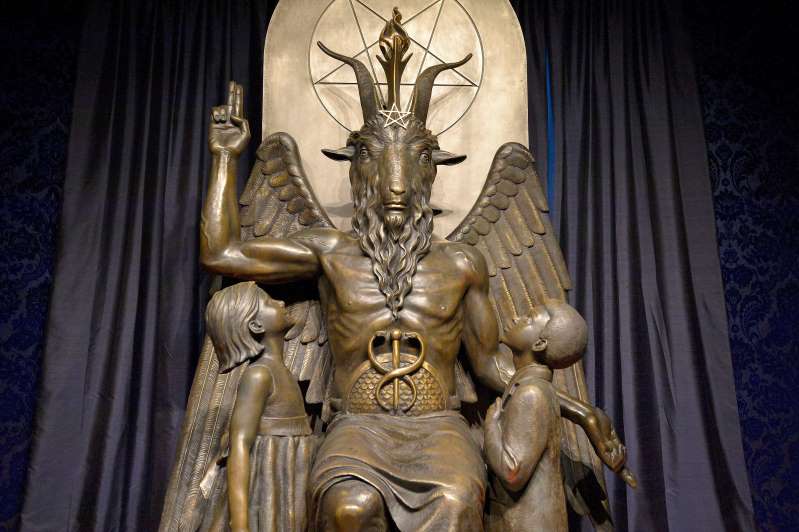Archbishop of Canterbury calls for extension of free school meals provision







Archbishop of Canterbury calls for extension of free school meals provision
The Archbishop of Canterbury and the Bishop of Durham have urged the Government to extend free school meals, highlighting the “harrowing” number of families it is thought could be destitute by Christmas.
The Most Rev Justin Welby and the Rt Revd Paul Butler called on the Government to provide free school meals to every child whose family was on universal credit, and expand holiday provision to all children on free school meals.
Their pleas come after Manchester United footballer Marcus Rashford forced the Government into a U-turn over its free school meals policy during lockdown, ensuring children did not go hungry over the summer period.
Today, @BishopPaulB and I are calling for free school meals for every child whose family is on universal credit, and holiday provision for all children on free school meals.

We stand with @MarcusRashford and everyone working so hard to make this happen.#EndChildFoodPoverty pic.twitter.com/DpZMf85FUX
— Archbishop of Canterbury (@JustinWelby) October 1, 2020
The food bank charity the Trussell Trust said that 46,000 food parcels would need to be provided to people in crisis between October and December this winter – an increase of 61% on last year.
They estimated that an additional 670,000 people would be destitute by the end of 2020, a prediction that Mr Welby and Bishop Butler described as “harrowing”.
The archbishop and bishop said it would be “vital for those most disadvantaged” that schools in their communities stayed open, but that teachers “can only do so much on their own” and needed appropriate funding to help tackle child hunger and poverty.
They cited examples such as St Mark’s secondary school in Bath, where 20% of students attend a breakfast club.
Appealing to the Government, the religious leaders said: “All schools must have the appropriate resources to be able to address issues of child hunger and poverty and expand their role as places of security for children who are at risk, whilst maintaining safety at school.”
They also advocated a “nature premium” to encourage youngsters to play outdoors to aid their learning as well as their physical and mental health.
They continued: “This can’t just be plucked out of thin air – schools and their staff are already at their limits when it comes to time and funding.”
Praising the volunteers who have looked after young people during the pandemic, they hailed Mr Rashford as one of “many heroes” for his free school meals campaign.
The England forward has since formed a child food poverty task force, linking up with some of the biggest supermarkets and food brands including Aldi, Tesco, Deliveroo and Kellogg’s.
The archbishop and bishop also commended Norwich Diocese’s Filling the Gap project, which provided 128 families with 26,082 meals over six weeks.
Reference: By Taz Ali, PA 4 days ago
Vatican releases financial, budget data amid scandal







Vatican releases financial, budget data amid scandal
ROME (AP) — The Vatican released a detailed budget, balance sheet and earning statement for the first time Thursday as it sought to reassure Catholics that it's serious about cleaning up its financial act following a corruption scandal that has exposed shoddy fiscal management.
The data marked the first time since 2016 that the Vatican has released any information about its finances, despite pledges by Pope Francis from the start of his pontificate in 2013 to be more transparent and accountable with the Holy See's money.
The data showed that the Vatican bureaucracy had narrowed its deficit to 11 million euros last year from 75 million euros in 2018, even taking into account a 25 million-euro drop in donations from dioceses and individuals alike.
But more than the earnings statement, the consolidated report provided the first-known publicly released information about the Vatican's net equity — estimated at 1.4 billion euros ($1.6 billion) for the Holy See Curia, or bureaucracy. The Vatican's overall patrimony blooms to 4 billion euros ($4.7 billion) when taking into account the cash-cow of the Vatican Museums, the Vatican bank and other sources of assets and funds.
The report also marked the first time the Vatican has made public how its operating budget is divided among the various Holy See offices, which serve as the central government of the 1.2-billion strong Catholic Church.
Astonishingly, the Congregation for the Doctrine of the Faith - in recent decades perhaps the best-known Vatican office because it processes all clergy sex abuse cases - operates on an annual budget of 3.36 million euros. That represents 1% of the Curia’s budget for its apostolic work, far less than what is budgeted for the Vatican's Apostolic Library or Archives.
The Congregation has long complained it has far too few people or resources to process the mountain of cases that have come to the Vatican in recent years - cases that have cost U.S. dioceses and religious orders more than $3 billion in legal settlements to victims of clergy abuse and fees.
The Vatican released the information ahead of the Sunday collection for Peter's Pence, the special extra donation Catholic faithful are asked to make once a year to support the pope's charitable works and to fund the operations of the Holy See.
“The faithful have the right to know how we use resources in the Holy See," the Vatican's finance minister, the Rev. Juan Antonio Guerrero Alves, said in explaining the decision to release the detailed information for the first time.
In an interview with the Vatican's in-house media, Guerrero said the mission of the Holy See was not to make profit, but to serve the church. Deficits were to be expected, he said, but also the correct management of resources.
“It's possible that in some cases, the Holy See has been not only poorly counseled but also defrauded," he said, referring to the recent scandals. “I think we're learning from the errors or imprudent (decisions) of the past."
It was a reference to an ongoing Vatican corruption investigation that has already cost a half-dozen Holy See employees their jobs, including a powerful cardinal.
Cardinal Angelo Becciu. the longtime No. 2 in the Vatican secretariat of state, was fired last week after Francis said he had evidence that the Italian embezzled 100,000 euros from the secretariat of state to fund a charity controlled by his brother.
Becciu has admitted he sent the money but denied wrongdoing, saying the funds were destined for his home diocese' charity, not his brother.
A bigger scandal dates from 2014, when the Vatican under Becciu entered into a real estate venture by investing over $200 million in a fund run by an Italian businessman. The deal gave the Holy See 45% of a luxury building in London’s Chelsea neighborhood.
The money came from the secretariat of state’s asset portfolio, which is funded in large part by the Peter’s Pence donations.
The Holy See decided in November 2018 to exit the investment fund, end its relationship with the businessman and to buy out the remainder of the building at 60 Sloane Ave. The buyout deal, however, cost the Holy See tens of millions of euros more in fees to middlemen, and sparked the Vatican investigation that has upended the Vatican for a year.
In part because of the scandal and the mismanagement of the secretariat of state’s own asset portfolio, Guerrero has wrested control of the funds and put them under the management of the Vatican’s central treasury office, known by its acronym, APSA. The same has been done for all other departments of the Curia.
“Centralizing (assets) will without doubt allow for greater transparency and more precise control," Guerrero said, while also allowing for a unified investment strategy that respects the Catholic Church's social doctrine and ethical norms.
By NICOLE WINFIELD, Associated Press 4 days ago
Trump has reportedly privately ridiculed religious leaders and spoken about religion with 'cynicism and contempt'








Trump has reportedly privately ridiculed religious leaders and spoken about religion with 'cynicism and contempt'
When President Trump speaks in private about religion, "many" of his comments are "marked by cynicism and contempt," reports The Atlantic.
Former aides described how they have "heard Trump ridicule conservative religious leaders, dismiss various faith groups with cartoonish stereotypes, and deride certain rites and doctrines held sacred by many of the Americans who constitute his base."
In one instance, Trump's former attorney Michael Cohen told The Atlantic that in 2015, Trump enthusiastically showed him an article about a megachurch pastor trying to raise $60 million for a private jet; Trump reportedly said the pastor was "full of sh-t" and that "they're all hustlers."
Cohen also remembered that once, when Trump was told that his son was at a playdate with a Jewish girl, he said to Cohen, "Great. I'm going to lose another one of my kids to your people." And according to Cohen, Trump frequently mocked Mitt Romney's Mormon faith.
In another instance, a former adviser recalled showing Trump a video of a televangelist performing "faith healings," which Trump reportedly laughed at, saying, "Man, that's some racket." The report additionally quotes a recording of Trump meeting with religious figures in 2016 in which he reportedly admitted that "
I don't know the Bible as well as some of the other people" and joked about being taken aback when Mike Pence asked him to bow his head and pray.
"I said, 'Excuse me?’" Trump reportedly said. "I'm not used to it."
Former campaign official A.J. Delgado told The Atlantic that Trump is "not a religious guy," while former Trump Organization executive Barbara Res said, "I always assumed he was an atheist."
The White House told The Atlantic that Trump is "a champion for religious liberty" who is "also well known for joking and his terrific sense of humor, which he shares with people of all faiths." Read more at The Atlantic.
Reference: The Week: Brendan Morrow 6 days ago
The Death Of Justice Ruth Bader Ginsburg Pushed Me To Join The Satanic Temple







The Death Of Justice Ruth Bader Ginsburg Pushed Me To Join The Satanic Temple
I am a forty-something attorney and mother who lives in a quiet neighbourhood with a yard and a garage full of scooters and soccer balls. I often walk with my children to get ice cream and spend weekends hiking through a national park. I am not the type of person who would normally consider becoming a Satanist, but these are not normal times.
Like so many other women in the United States, when I learned of Justice Ruth Bader Ginsburg’s passing, my first reaction was not grief but fear. I fear that American citizens are inching closer to living in a theocracy or dictatorship and that the checks meant to prevent this from happening are close to eroding beyond repair.
When Justice Ginsburg died, I knew immediately that action was needed on a scale we have not seen before. Our democracy has become so fragile that the loss of one of the last guardians of common sense and decency in government less than two months before a pivotal election has put our civil and reproductive rights in danger like never before. And, so, I have turned to Satanism.
Members of the Satanic Temple do not believe in the supernatural or superstition. In the same way that some Unitarians and some Jews do not believe in God, Satanic Temple members do not worship Satan and most are atheists. They are not affiliated in any way with the Church of Satan. Instead, the Satanic Temple uses the devil as a symbol of rebellion.
Just like other faiths, the Satanic Temple has a code that their members believe in deeply and use to guide their lives. These Seven Fundamental Tenets include that “one should strive to act with compassion and empathy toward all creatures in accordance with reason,” that “the struggle for justice is an ongoing and necessary pursuit that should prevail over laws and institutions,” and that “one’s body is inviolable, subject to one’s own will alone.”

Reading through the Seven Tenets, I was struck by how closely they aligned with the unwritten code I had used to try to guide my own life for several years. I realised, happily, that these were my people and that I had been a Satanist for several years without even knowing it. When Justice Ginsburg’s death suddenly made combating the threats to reproductive rights and a government free from religious interference more urgent, I knew it was time to join them and support their conceptual and legal battles.
Even before Ginsburg’s death, the Supreme Court was unwilling to provide adequate protection for a woman’s right to choose and to control her body. The court was unwilling to keep church and state separate. Now, without her voice of reason on the court ― let alone her vote ― Roe v. Wade is in imminent danger of being overturned not based on legal arguments or scientific reasoning, but because of religious objections to what is a safe and necessary procedure for the women who seek it out after discussion with their physician.
Ginsburg’s replacement is all but certain to be vehemently anti-choice, with one of the top contenders belonging to a sect that actually used the term “handmaid” to refer to some women until the popularity of the TV series “The Handmaid’s Tale” gave the term negative connotations.
Reading through the Seven Tenets, I was struck by how closely they aligned with the unwritten code I had used to try to guide my own life for several years. I realized, happily, that these were my people and that I had been a Satanist for several years without even knowing it.
In the hours after Justice Ginsburg’s death, I sat wondering what the future would hold for my daughters. Their ability to live in a country where the religious beliefs of others would not play a role in their right to assert autonomy over their own bodies was suddenly, starkly, in danger. Traditional means of keeping abortion safe and legal seemed woefully inadequate to protect the rights that women in the generation before me had fought so hard to secure.
Almost immediately I sought strength in the Satanic Temple’s efforts to turn religious arguments on their head by pushing for religious liberty for their members on an equal basis with believers in the dominant Christian faiths. And this is not just a theoretical push. The temple has launched campaigns and filed lawsuits to compel the government to do this in matters ranging from exemptions from legal mandates to cover birth control to the ability to display religious symbols in government buildings or allow religious clubs in public schools. By pointing out instances where the government has favoured Christian rhetoric ― and filing legal challenges to stop it ― the Satanic Temple has transformed belief into action and has demonstrated what freedom fighting truly looks like.
The Satanic Temple hopes to appear before the Supreme Court in a case challenging a Missouri abortion law that requires those seeking to terminate their pregnancy to first receive materials asserting that their abortion would end the life of a separate, unique person. The temple argues that these materials violate the deeply held religious beliefs of one of its members regarding bodily autonomy and scientifically reasonable personal choice.
The argument the Satanic Temple is using is the same one the Supreme Court effectively endorsed in the Hobby Lobby birth control case, for which Justice Ginsburg wrote the dissent ― that no one should have to follow a law that violates their deeply held religious beliefs. If a Christian should not have to do so based on their religion, a Satanist should not have to either. This is what equality under the law means on a fundamental level.
This is an organisation I want standing up for my rights and for my daughters’. While I support more mainstream groups like the American Civil Liberties Union and Americans United for Church and State, my research has shown that the Satanic Temple is truly in line with my beliefs about protecting our First Amendment rights and fighting laws that promote or are based on religious doctrine and that it is willing to use radical, creative and yet legally sound strategies to make its case.
I was able to become a mother when I wanted on my own terms. Throughout my pregnancy, I had access to scientifically accurate information and the ability to make informed choices with my doctor. While I never had an abortion, I want the same opportunities to choose for my own daughters. I am far from certain these rights will exist ten years from now when they may be deciding when, how or even whether to start their own families.
We need creative, resolute thinkers who are willing to stand up for what they believe in and take concrete action to do so, and the Satanic Temple is full of those kind of people. I am proud to now count myself among their ranks.
There is a real chance that the Supreme Court will be lost for a generation or more to justices appointed for their religious beliefs rather than a deep understanding of the Constitution or a desire for justice to be carried out on an impartial basis. Because of this, I believe that the Satanic Temple ― and its members’ dedication to fighting for true freedom ― represents our best, last defence against anti-choice lawmakers who are seeking to assert power over women’s bodies and take away our right to choose.
We need creative, resolute thinkers who are willing to stand up for what they believe in and take concrete action to do so, and the Satanic Temple is full of those kind of people. I am proud to now count myself among their ranks.
Everyone who cares about women having autonomy over their bodies should care about efforts to use religion to chip away at this right. We need to think outside the box to challenge what is coming and what is already here. The Satanic Temple is already doing that, and by becoming one of its members, I believe I have joined a community of people who will stop at nothing to safeguard my family’s rights ― and all of our rights ― when they are at their most vulnerable.
Jamie Smith is an attorney and mother who cares about civil rights. This article first appeared on HuffPost Personal.
Reference: HuffPost: Jamie Smith 4 days ago25/09.2020
Articles-Latest
- Koran burning conviction sparks fury as blasphemy law 'returns to UK'
- Robert Francis Prevost - Pope Leo XIV
- Pope Francis' death follows recent health challenges. Here's what we know about how he died.
- Easter April 2025 - international Celebrations
- The Rule of the twelve psalms -Worthy is the Lamb
- Religion in Africa Before Christianity and Islam
- 6 The Origin of Yahweh
- Dumo Di Milano
- What Did the Crow Tribe Believe In: Discover The Beliefs!
- 7 Reasons Historic Christianity Rejects the Book of Enoch
- 8 Breathtaking Mountain Monasteries Around the World
- Ethiopian Bible is oldest and most complete on earth
- Muhammad Muhammad was a prophet and founder of Islam.
- World Day of the Poor – SVP Christmas Campaign 2024
- Pope Francis to open 5 sacred portals on Christmas Eve — for a ritual that’s never been done before
- The 144,000 in Revelation
- Over 73 dead bodies 'used for meditation', 600 crocs in a pond, found in two Thai temples
- Occultism: Western Occult Tradition
- What is a Mudra
- Blood Sacrifices: Ancient Rituals of Life and Death
Articles-Most Read
- Home
- Let There Be Light
- Plants that feel and Speak
- The Singing Forest
- The Singing Forest-2
- Introduction
- Meditation
- Using Essential Oils for Spiritual Connection
- Heaven Scent
- Plants that Feel and Speak-2
- Purification
- Making the Spiritual Connection
- Anointing
- Essential Oils: The unseen Energies
- The Sanctity of Plants
- The Aroma Of Worship-Foreward
- The Aroma Of Worship - Introduction
- Methods Of Use
- Spiritual Blending
- Handling and Storage






